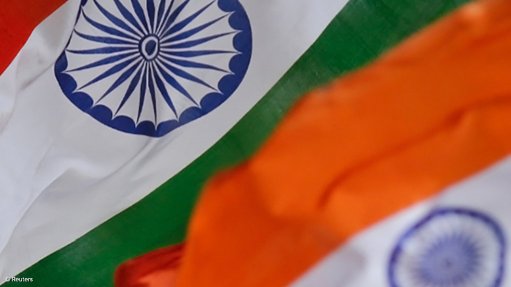
KOLKATA (miningweekly.com) – The Indian government is seeking US help in completing seismic studies across the entire sedimentary basin as part of Indo-US collaboration on energy security.
Indian Petroleum and Natural Gas Minister Dharmendra Pradhan requested the help in talks with US Deputy Secretary of Energy, Daniel Poneman, during the US official’s visit to the country last month.
Indo-US collaboration in geoscientific and seismic studies are expected to feature high on the agenda in talks between Indian Prime Minister Narendra Modi and US President Barack Obama during Modi’s scheduled visit to the US at the end of September.
“The Indo-US summit meeting next month will focus on energy security and cooperation in technical exploratory collaborations, clean energy and energy access,” an official in the Indian Petroleum and Natural Gas Ministry said.
“From the Indian side, US companies have been invited to participate in Indian oil and gas exploration activities while Indian companies are looking at stepping up investments in US shale gas assets opening up two-way bilateral relations between the two countries in energy sectors,” he added.
Besides two-way access to energy assets in both countries, technological collaborations in geoscientific data generation and seismic studies would enable India to build up critical capacities and plug current deficiencies in basic exploration and mineral mapping capabilities.
According to government sources, even with a total sedimentary basin of 3.14-million square kilometres, significant parts of these areas were not explored and did not have any geoscientific data. In fact, it was pointed out that there was no geoscientific data for hydrocarbons across 48% of the sedimentary basin in the country.
The Indian government has set a deadline of 2025 to complete seismic study for the entire sedimentary basis as absence of data was proving to be the biggest hurdle in awarding hydrocarbon assets to private investors through competitive bidding processes, the Ministry official said.
A working paper of Geological Survey of India noted that “the technological gaps in exploration have been identified, which include absence of detailed structural geophysical and geochemical data, use of obsolete and time-consuming drilling equipment and techniques, lack of offshore drilling technology, lack of use of hyperspectral remote sensing and [three-dimensional] seismic survey to provide detailed geological and mineral mapping capability both at regional, as well as project scales.”